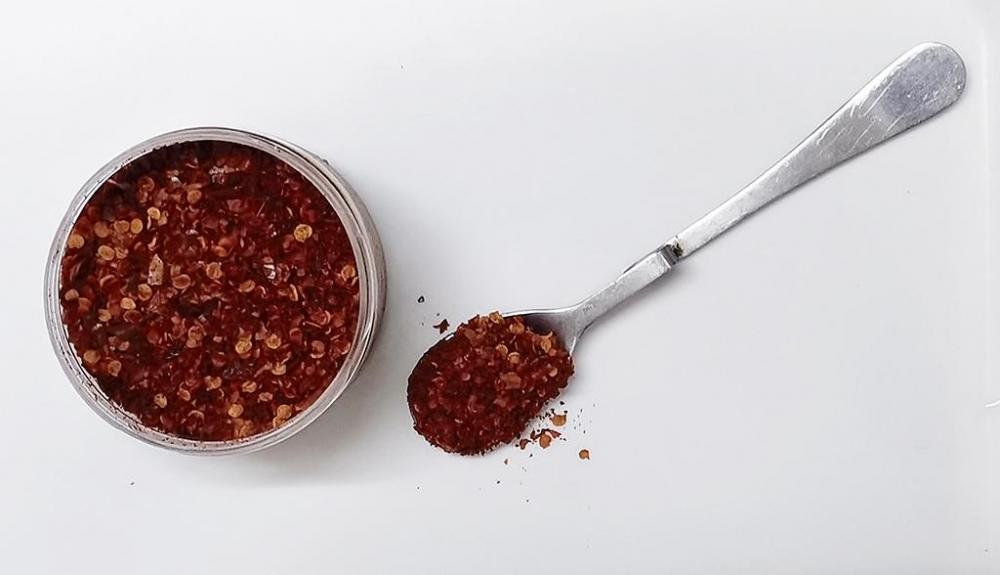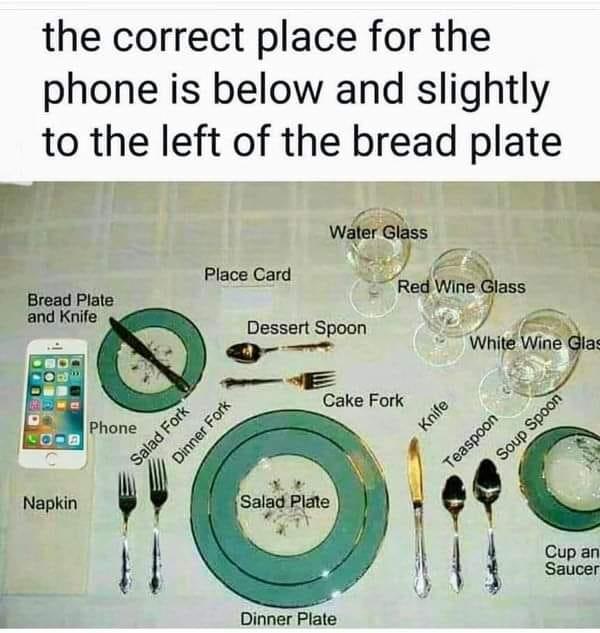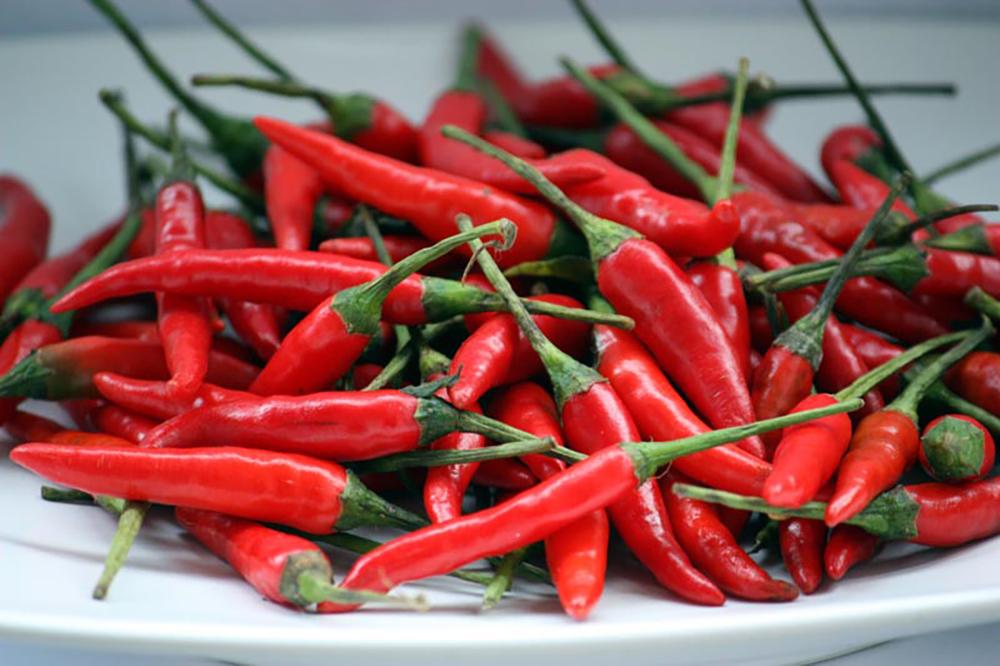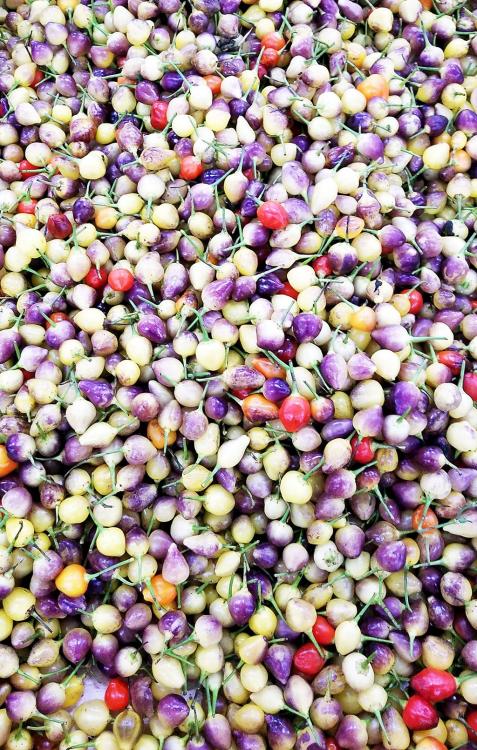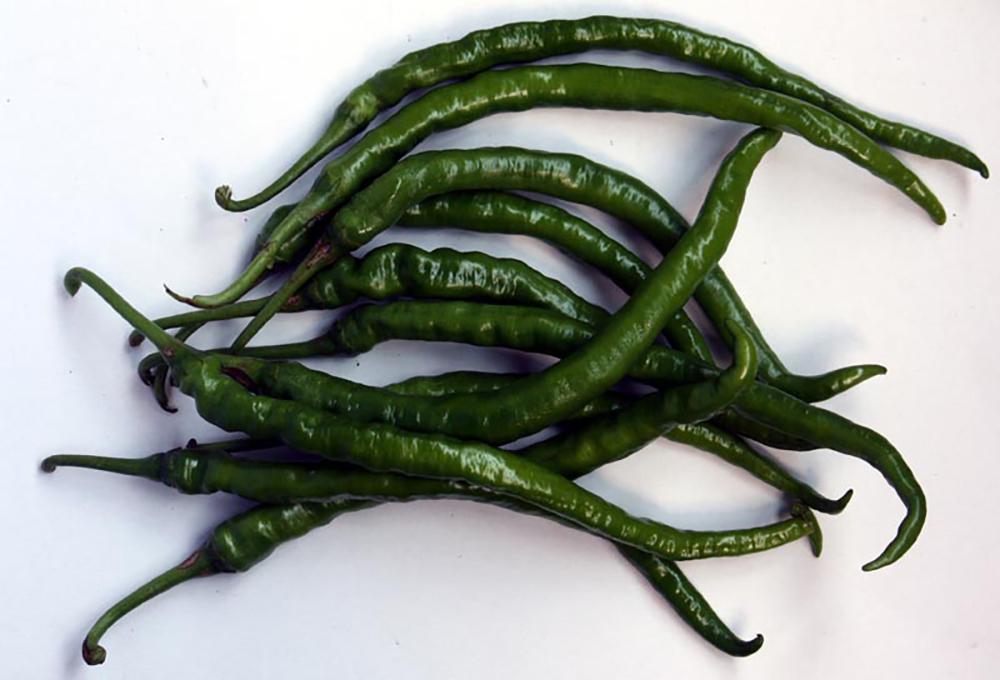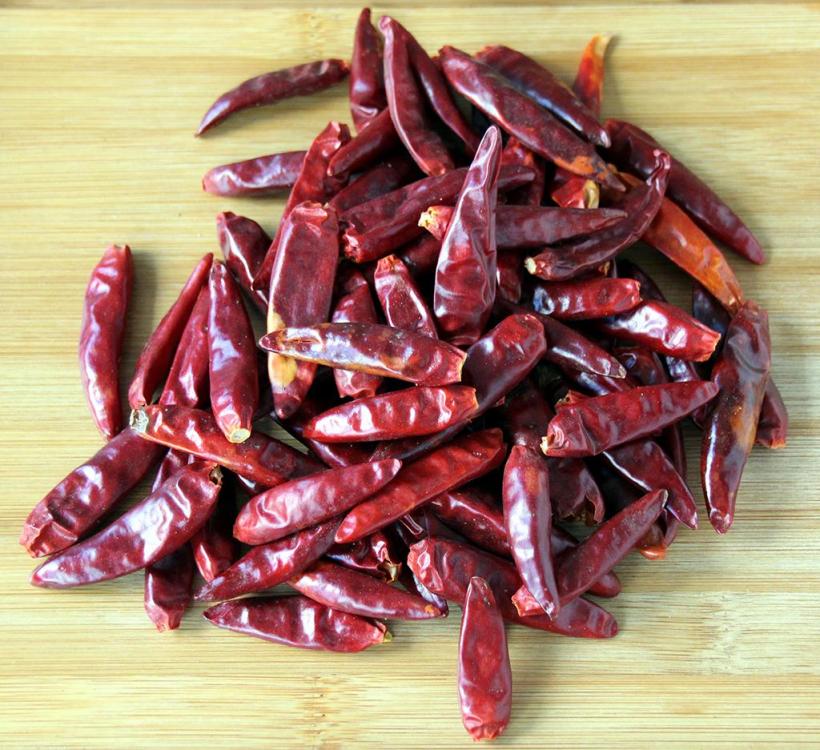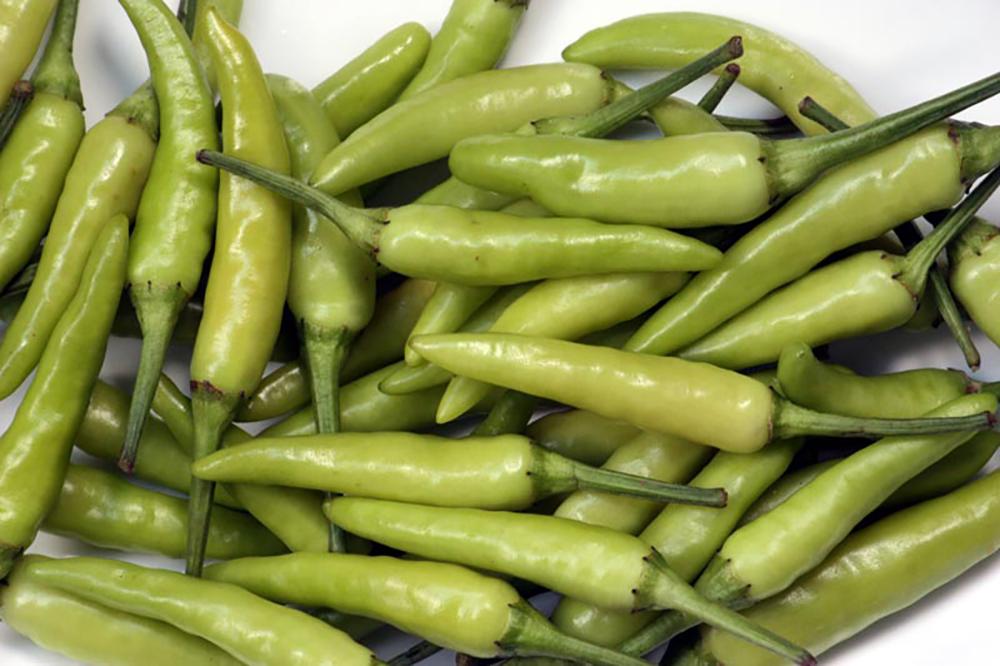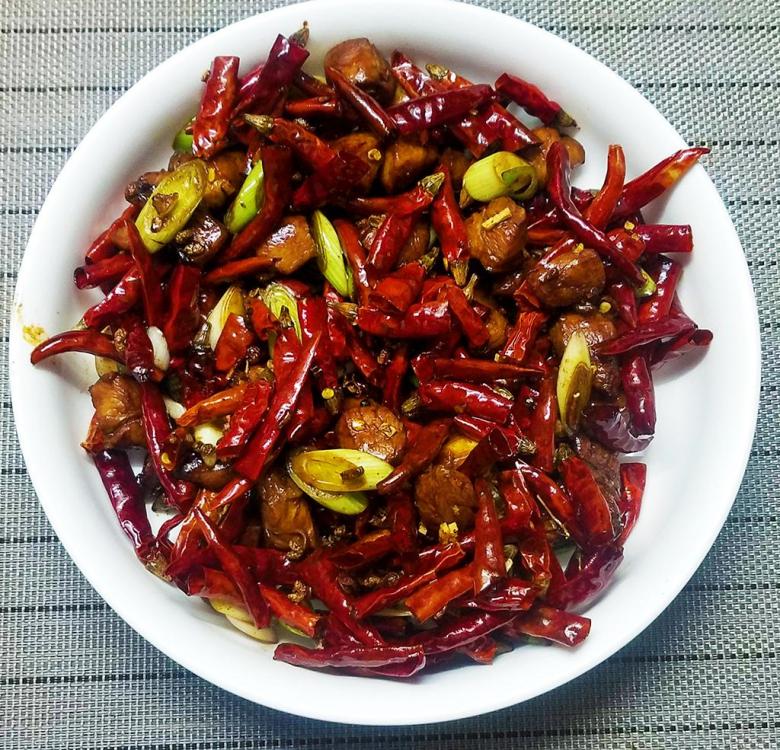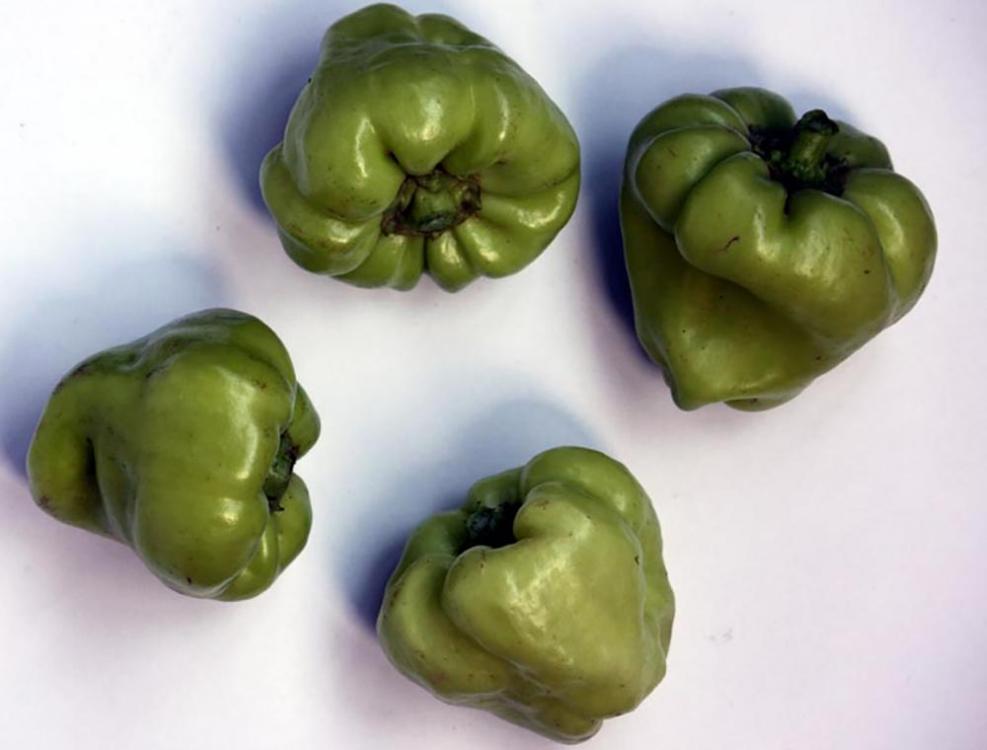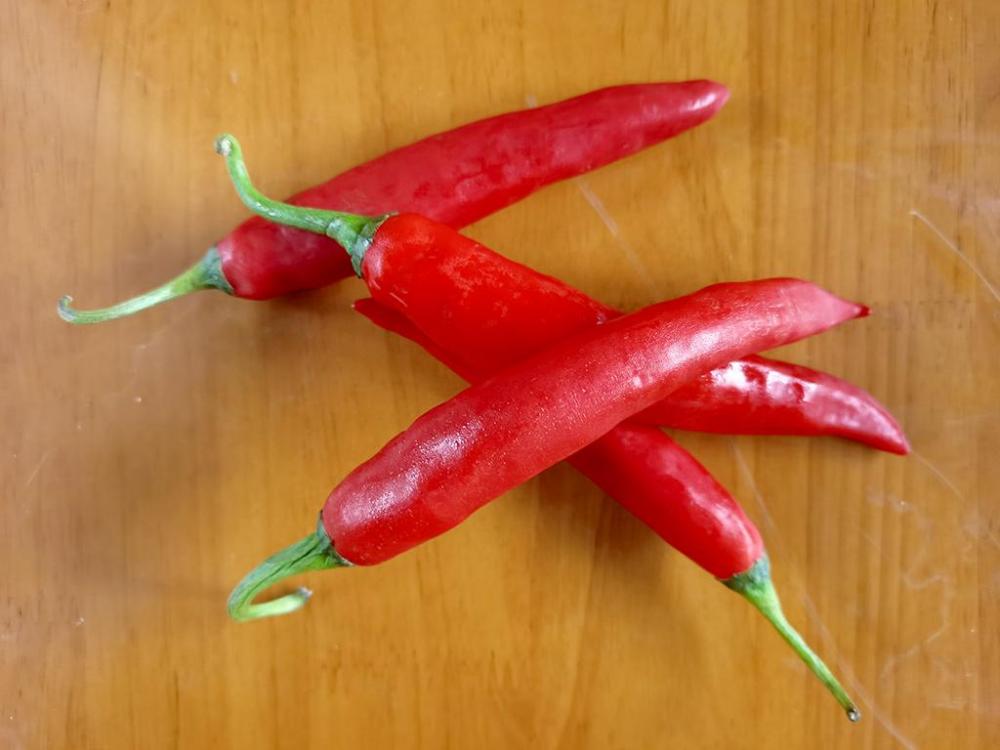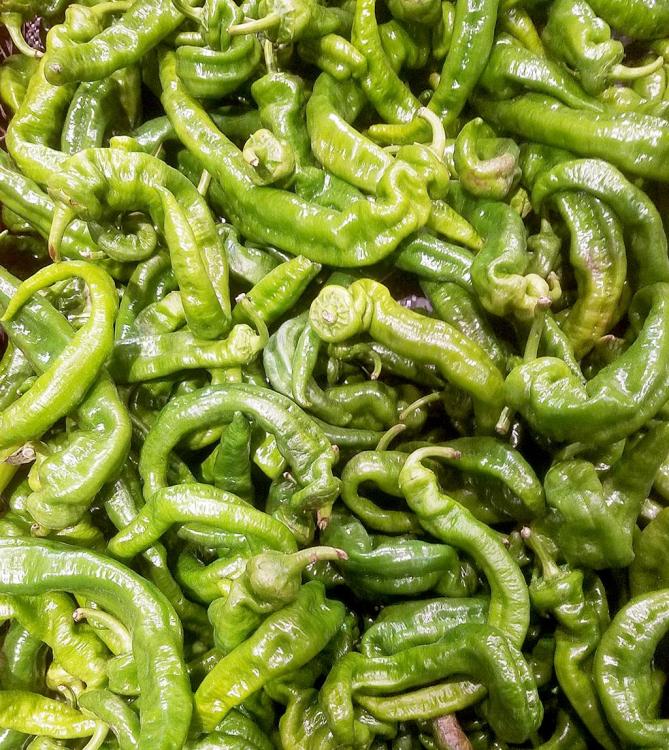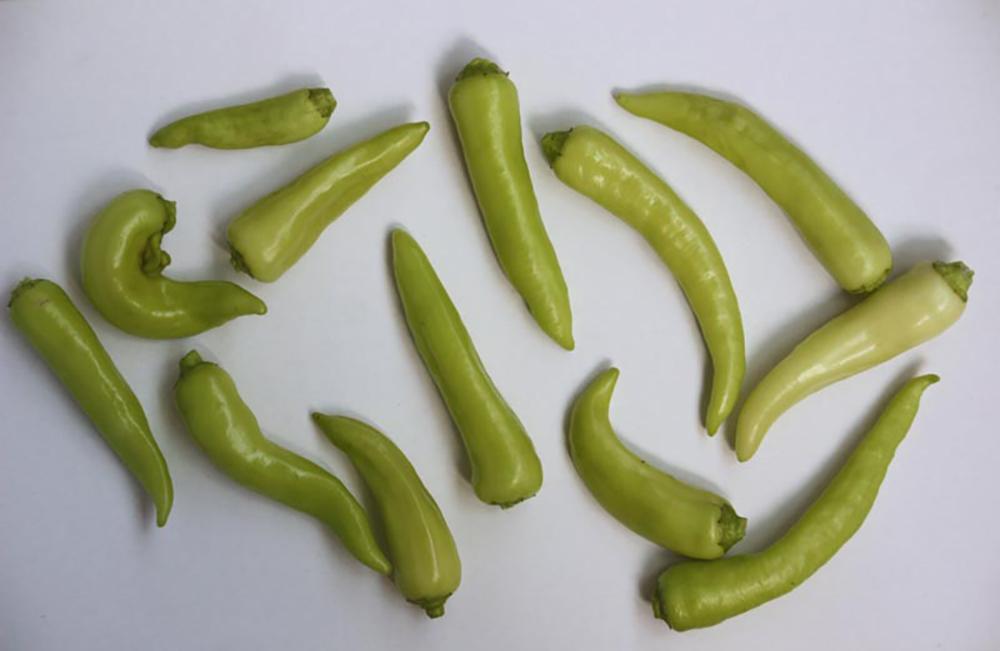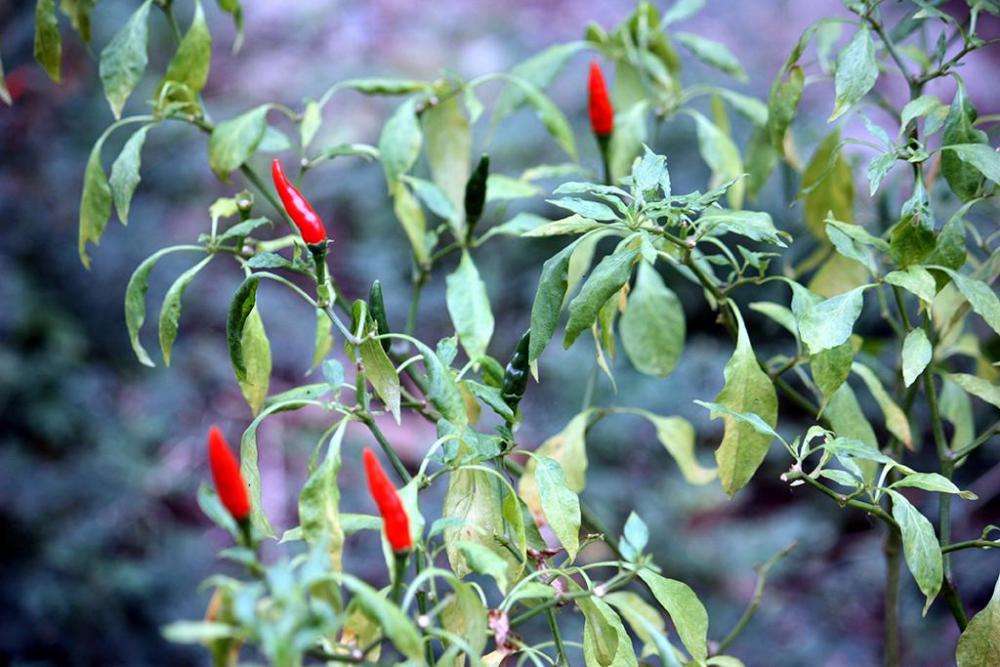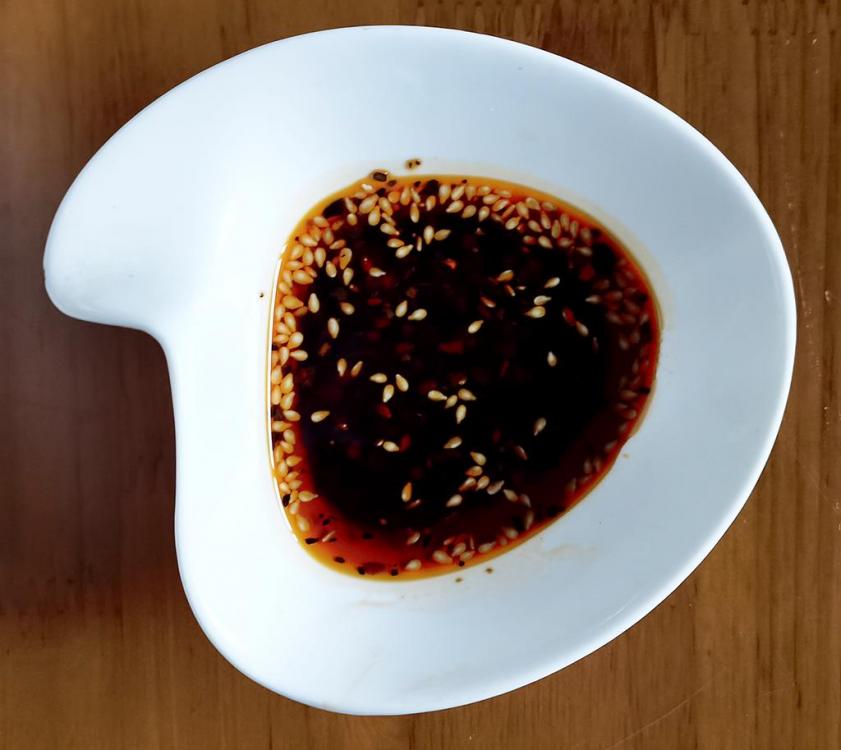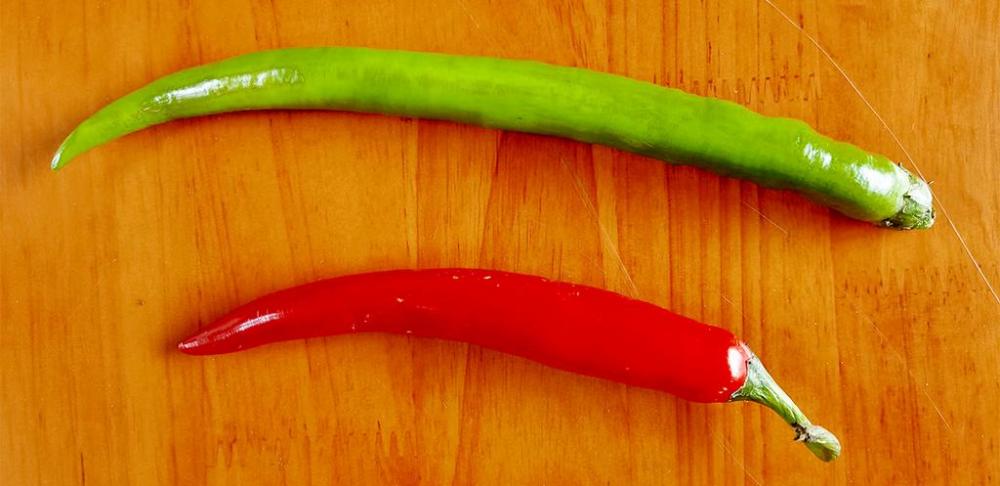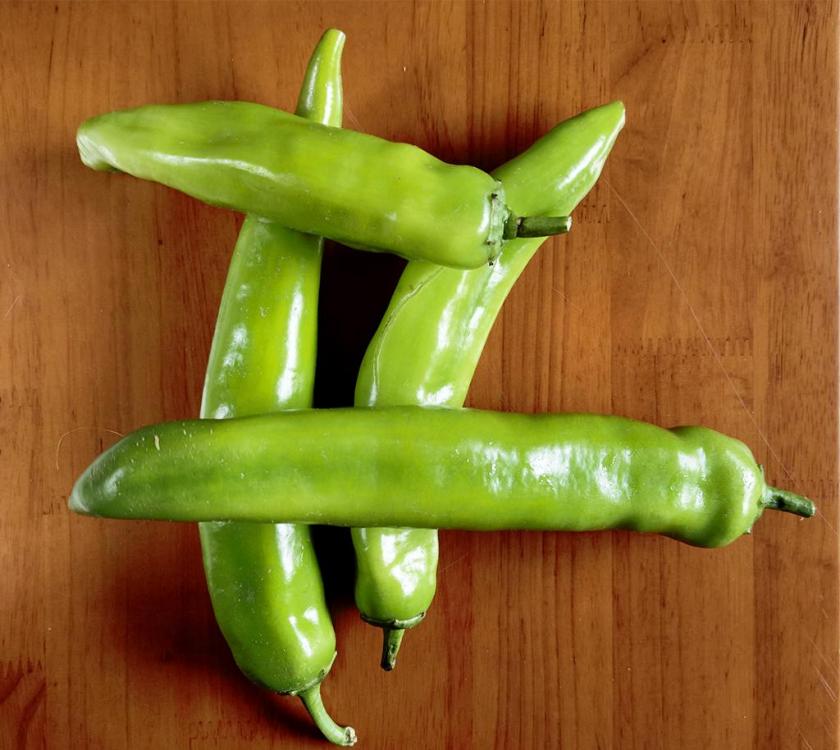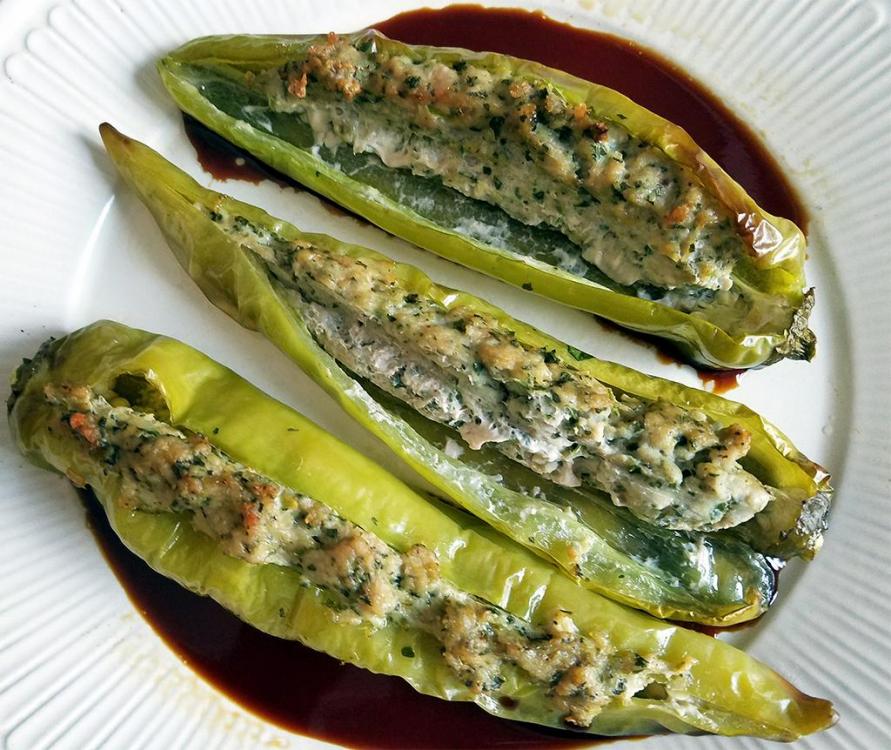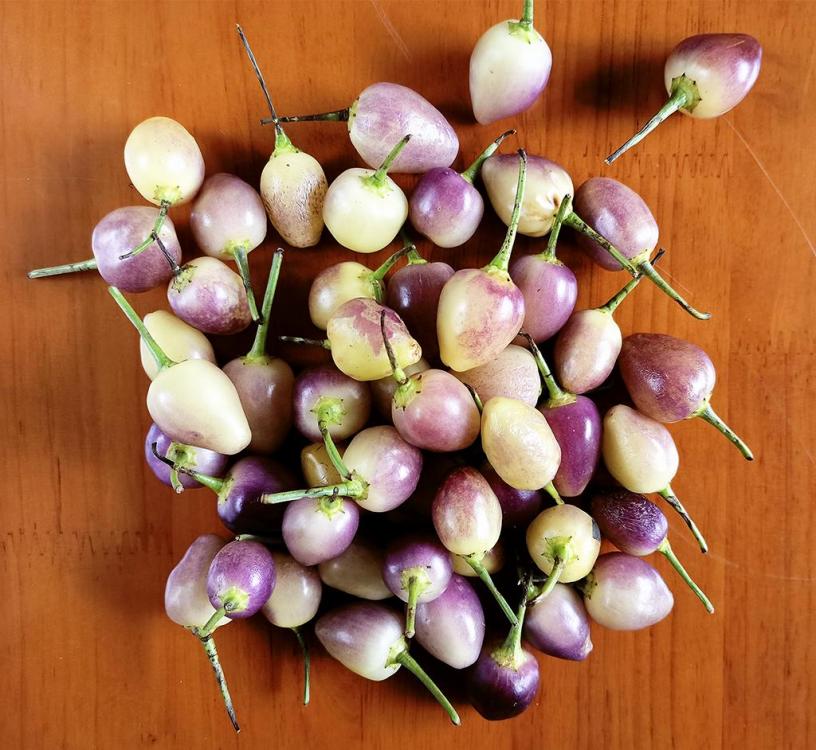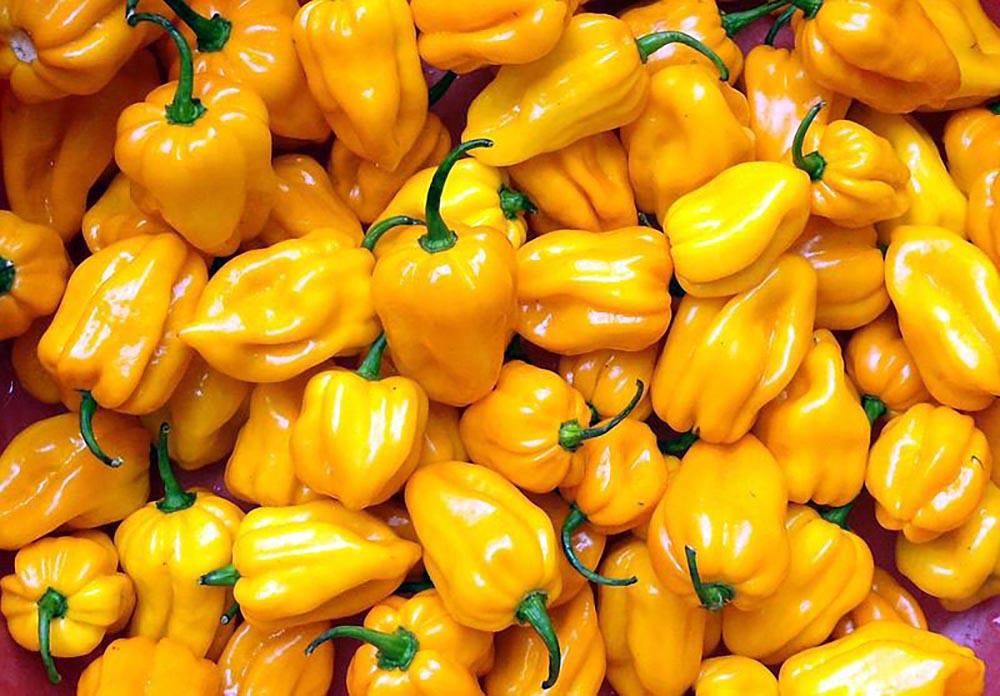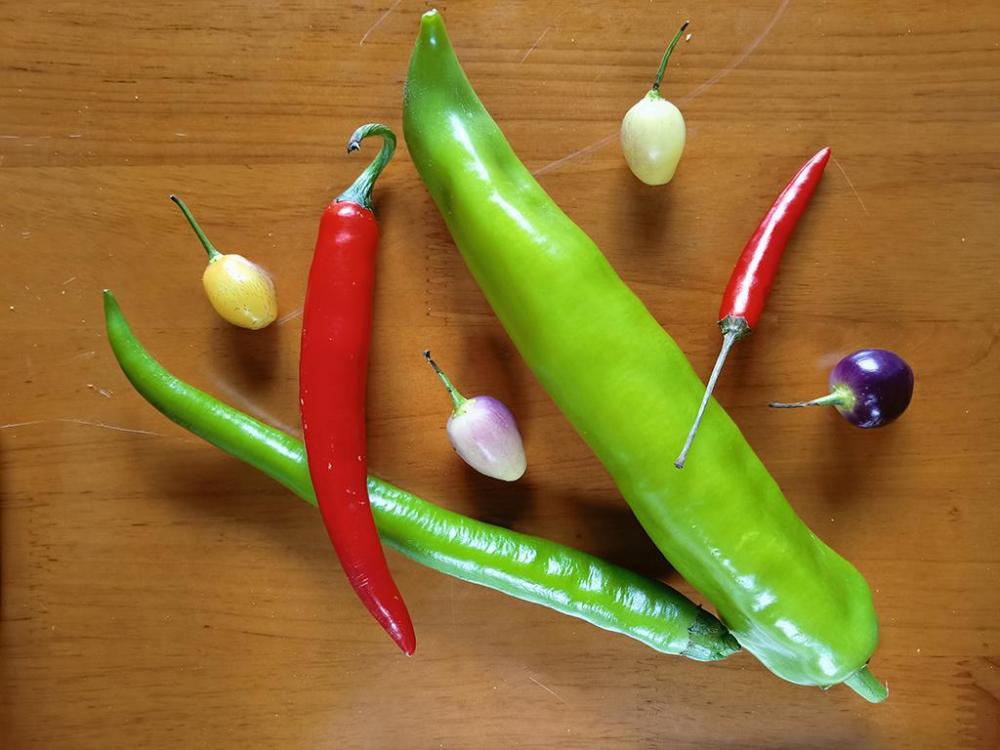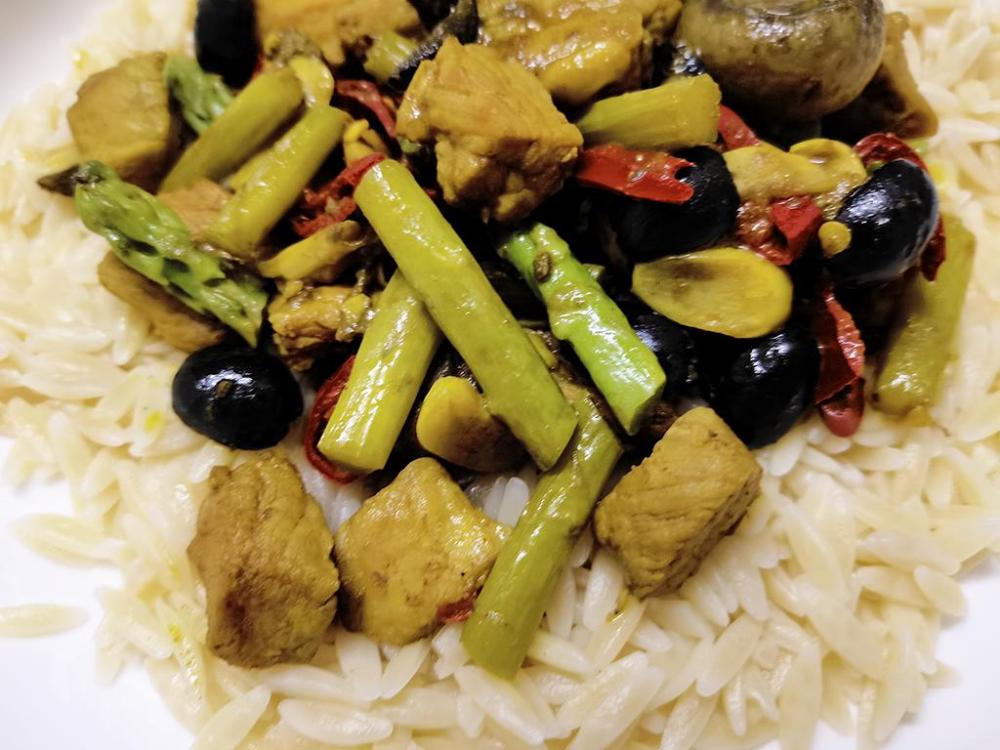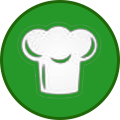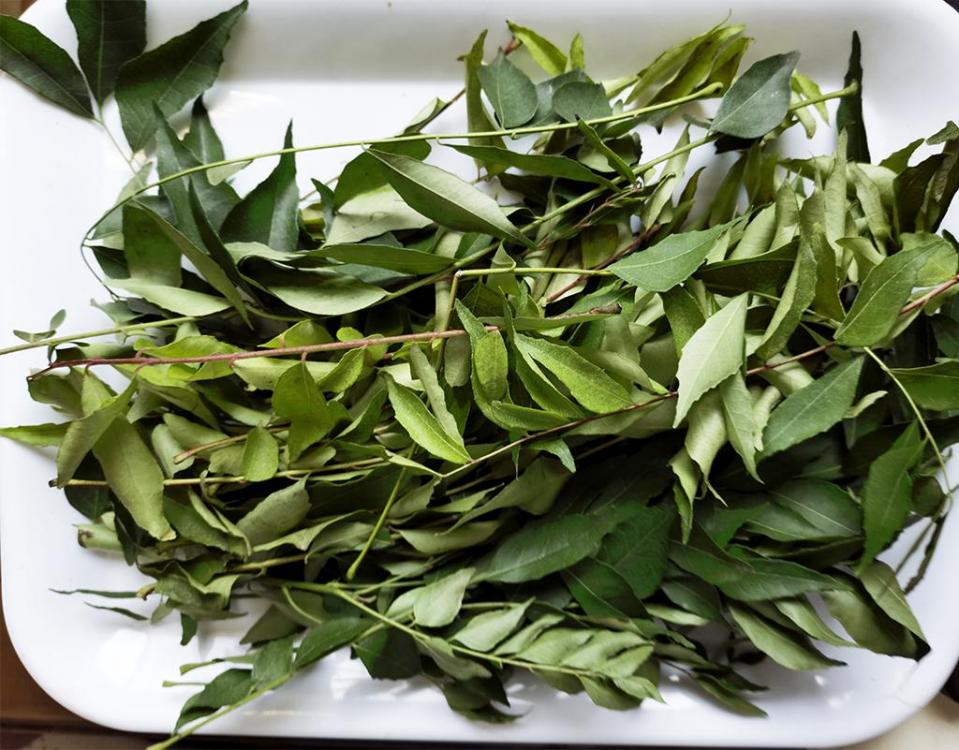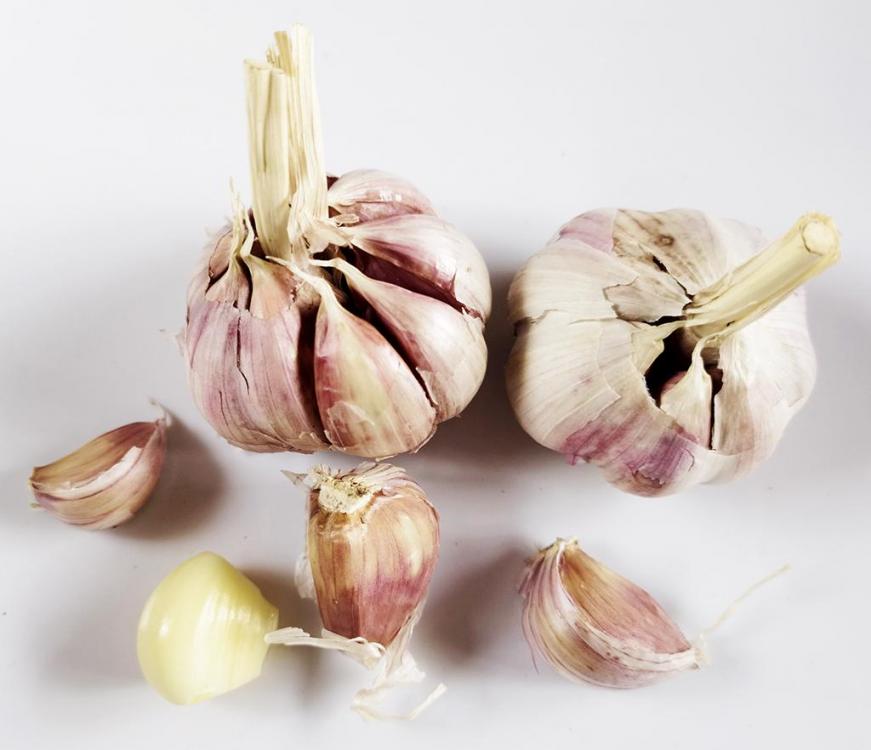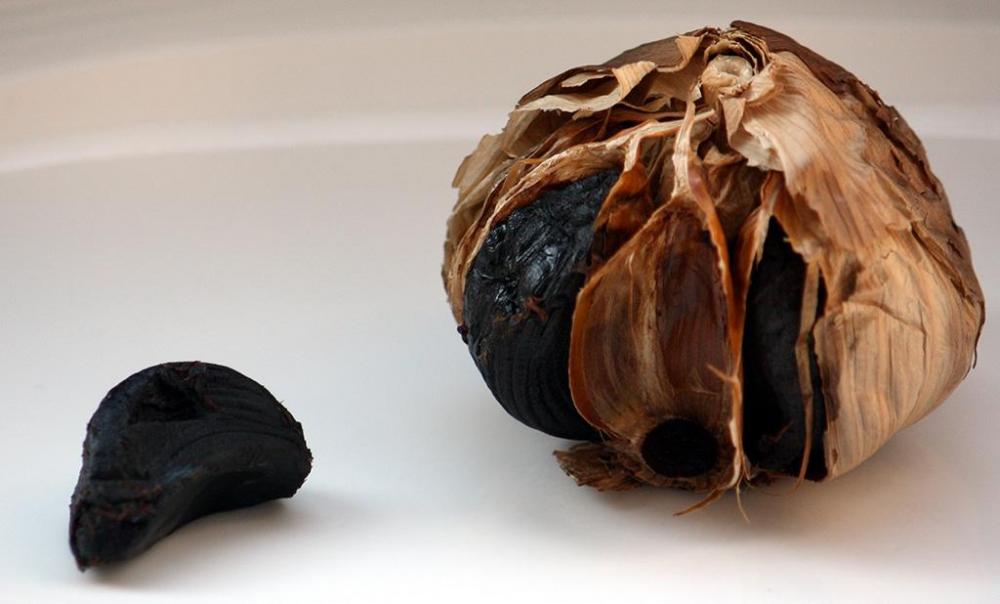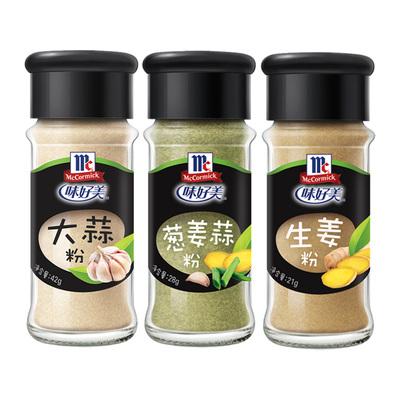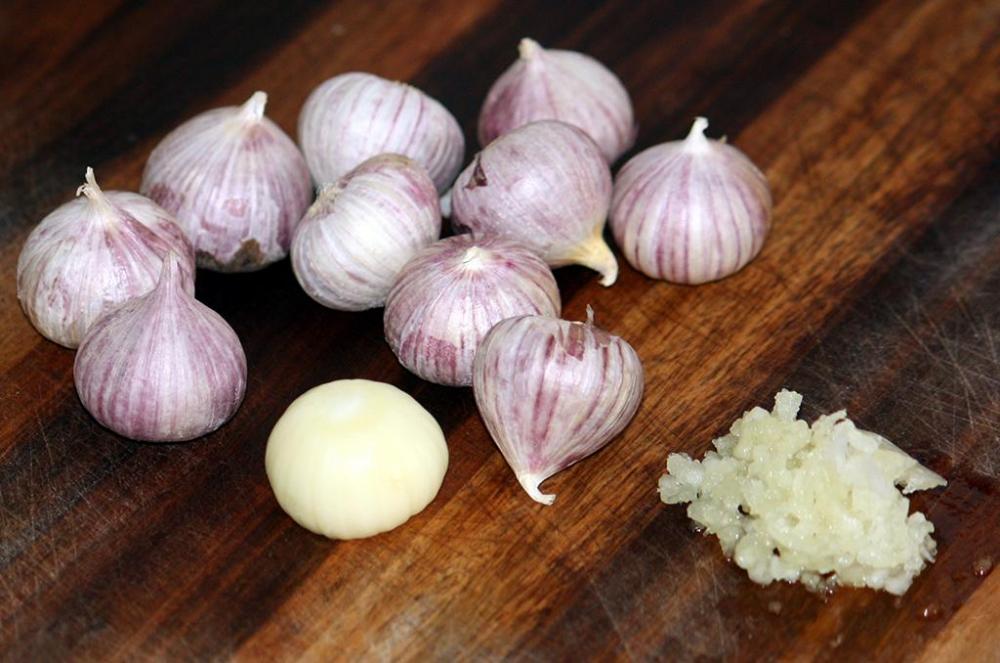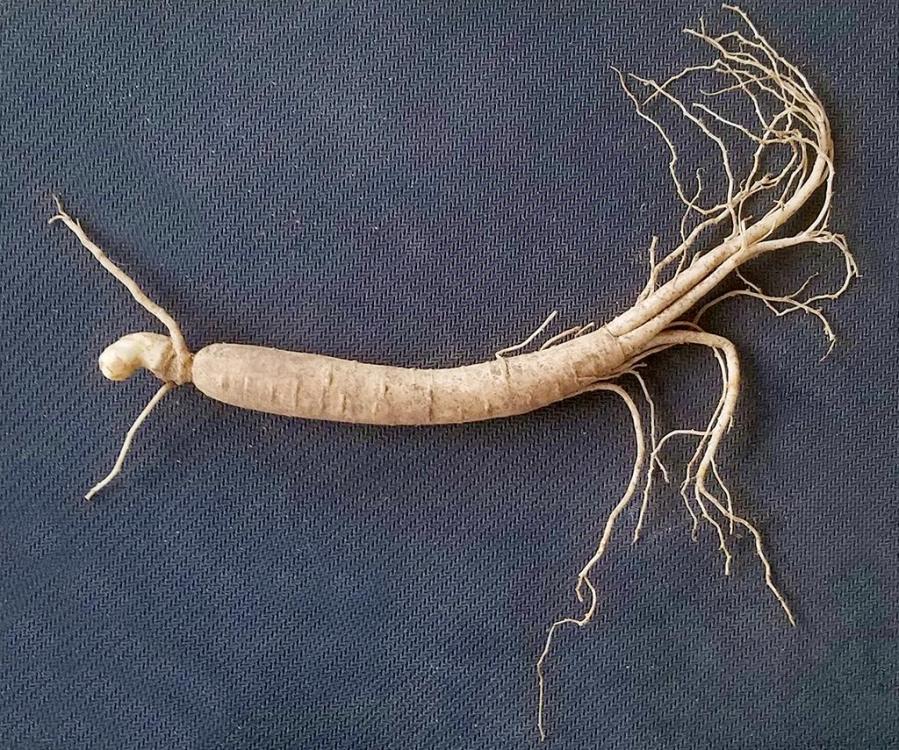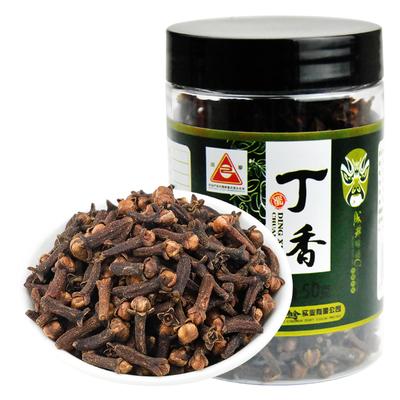-
Posts
16,814 -
Joined
-
Last visited
Content Type
Profiles
Forums
Store
Help Articles
Everything posted by liuzhou
-
Yes. Another reason is that, as I said, in some dishes the chillies are not meant to be eaten. If the chillies in the 辣子鸡 (là zi jī) - Chicken with Chilli dish were to be substituted with the same amount in powdered form, the dish would be lethal!
-
Powdered and flaked chilli is available (as I mentioned), but is used much less often than we perhaps do in western countries. The Sichuan chilli oil I posted contains flaked chillies, for example. Chinese cuisine generally prefers whole or sliced fresh and dried chillies, though.
-
Thesauruses. No question. When words from other languages become naturalised into Englsh, they almost always take on regular English inflections. There are thousands of examples. Pluralising a fully naturalised word (since the 16 century) using obsolete forms from dead languages is just pretentious. Latin died for good reasons!
-
Most certainly. I worked on a famous one and have many thesaurus engineer friends! I don't think that's what he needs. Dry meat is typical of this kind of canteen food. Cooked in advance and held until serving time. I'm surprised they get the vegetables OK.
-
Tien Tsin is the old romanization of 天津 (Tiān jīn) Tianjin, the large port city in northern China bordering Beijing. Tianjin and other northern cuisine seldom uses chillies. The chillies are very similar in flavour and strength to those used in Sichuan and Hunan cuisine, but tend to be smaller at about 5 cm / 2 inches long. They are actually a Japanese cultivar that was introduced to China via Tianjin in the late 1970s, hence the name. There is no other connection to the city. They are not so common in China as they appear to be abroad. The fact that they are using the old romanization tends to support that. It isn't used in China.
-
18. 辣椒 (là jiāo) – Chilli – Capsicum Let’s get the spelling of the name out of the way for a start. ‘Chilli’, ‘chili’ and ‘chile’ are all all acceptable somewhere. I use ‘chilli’ because a) it’s the preferred British English and I am British and b) it is the original romanisation of the Nahuatl ‘chīlli’. Just to confuse things further, the first recorded written use of the word in English (1662) was spelled ‘chille’. It is also spelled ‘chilly’ by some in the Indian subcontinent. It also has no connection to the country, Chile. So no silly arguments, please. Native to Mexico, the plant was introduced to China by the Portuguese in the 16th century; however, it took a while to catch on, only really becoming popular in the 18th century. Prior to that spicy heat came mostly from white pepper, as is still used for some dishes today. In China today, it is most used in Hunan, Sichuan and Guizhou provinces, as well as northern Guangxi where I am. But, it also turns up in other parts of China. Just less so. Here and in the named provinces it is the third element of the culinary holy trinity after garlic and ginger (replacing scallions as third in the rest of China). There are many different, specifically Chinese cultivars and they are all sold fresh, crushed, dried, powdered and pickled. Here I will only be dealing with fresh and some dried. Many chillies here are seasonal so, for today, I will just include what are the more perennial and what is in season now. I will add others and edit as they appear in the market. I am giving the local names out of interest and amusement. Chilli names are notoriously fluid here. One type may even have different names at adjacent market stalls. I have no idea how these may equate to American or other chillies. Looking similar is not enough. I will ignore bell peppers because I always do, for obvious reasons. So. off to work. 指天椒 (zhǐ tiān jiāo) Most common are the approximately 7 cm / 3 inch long 朝天椒 (cháo tiān jiāo), ‘facing heaven’ chillies or 指天椒 (zhǐ tiān jiāo), ‘pointing to heaven’ chillies (pictured above), the name coming from the fact that they grow pointing upwards unlike most varieties. They are a cultivar of Capsicum frutescens. There is also a very similar variety called 七星椒 (qī xīng jiāo) or ‘7 star chillies’, named so as they tend to grow in bunches of around seven. These chillies also turn up in their immature green state. (Note: the Wikipedia page on ‘Facing Heaven Chilis’ is not about these, but a different American variety.) Facing Heaven Chillies growing in my neighbour’s plot in my countryside home. Green Facing Heaven Chillies These heavenly chillies are sold both fresh and dried; the dried being more commonly used in Sichuan cooking. They are also crushed and powdered. I’d describe them as medium hot. In many Sichuan dishes such as 宫保鸡丁 (gōng bǎo jī dīng), Kung-po chicken and, especially 辣子鸡 (là zi jī), Chicken with Chillies, the chillies are not actually eaten but merely used to flavour and colour the dishes. They are halved and the seeds removed before use. 干指天椒 (gān zhǐ tiān jiāo) - Dried Facing Heaven Chillies 辣子鸡 (là zi jī) - Chicken with Chilli The same chillies are also considered best for making 红油 (hóng yóu), Sichuanese red chilli oil. 红油 (hóng yóu) - Sichuan Chilli Oil Next, we have the beautiful people. As everyone knows, beautiful people come in two colours, red and green. Green beautiful people chillies 青美人椒 (qīng měi rén jiāo) or ‘green beautiful people chilli’ is around 20 cm / 8 inches long, whereas 红美人椒 (hóng měi rén jiāo) ‘red beautiful people chili’ is about 14 cm / 5½ inches. Diameter at the widest is around 2cm / ¾ inch for both. These can be hot, especially the red, but they are unpredictable. I use these a lot. Red beautiful people chilllies Here are the two side by side for size comparison. Another year round chilli is the 青尖椒 (qīng jiān jiāo) or ‘green pointed chilli’. 青尖椒 (qīng jiān jiāo) or ‘green pointed chilli’. These big fellows can be 23cm / 9 inches long and have a diameter of around 5cm / 2 inches. The are fairly mild and have a pleasant vegetal flavour, although they can sometimes creep up and hit you! I also use these a lot in 肉夹馍 (ròu jiā mó) and 青椒肉片 (qīng jiāo ròu piàn) a simple but common pork and chilli stir-fry. They are also often stuffed with ground pork and either steamed along with the rice in a rice cooker, or fried. Many supermarkets sell them pre-prepared and ready for you to cook, but I do them myself. I prefer to know what is in my minced / ground pork, thank you! These next chillies are more seasonal, but the season is now. They are either called 五彩椒 (wǔ cǎi jiāo), five colour chillies or 七彩椒 (qī cǎi jiāo), seven colour chillies, although numbers in both are only approximate. They are sometimes also called 米椒 (mǐ jiāo), literally 'rice chillies', but 米 (mǐ) is often used as an adjective meaning 'small', that being the meaning here. They are about the size of grapes. 五彩椒 (wǔ cǎi jiāo), five colour chillies 七彩椒 (qī cǎi jiāo), seven colour chillies However many colours there are , these are HOT. Others that turn up from time time include: 青泡椒 (qīng pào jiāo) Green 'bubble' chillies. This name is a little confusing. 泡椒 (pào jiāo) usually means 'pickled chillies' but these are clearly not pickled. It is another meaning of the same character. They are similar in shape to 灯笼椒 (dēng lóng jiāo) lantern chillies but those are more usually a bit larger and yellow or red. These are not available at the moment. Watch this space. 黄灯笼椒 (huáng dēng lóng jiāo) - Yellow Lantern Chillies Then there are the 螺丝椒 (luó sī jiāo), literally 'screw chillies'. These are what you may know as 'shishito chillies', the Japanese name. Mild and smoky flavoured. They had these in the market this morning, but I didn't bite. Already have plans. Finally, for now, we also get these which are called 白辣椒 (bái là jiāo ) which means 'white chili'. They are more white at the beginning of their seasonability, but it's getting late in the summer now, so they tend to be this pale green colour. These are relatively hot. Another one I buy a lot. Happy Heat!
-
These homophone errors are common, either through ignorance or carelessness or wandering attention. They are however, kind of understandable. 'chicken' and 'pork fall into a different category, I would suggest.
-
I will never again post my dinner in the dinner thread and misidentify the pork as chicken. When I bought it, I knew it was pork; when I cooked it I knew it was pork; when I ate it I knew it was pork. When I posted it, my fingers decided to type 'chicken' instead. Now edited.
-
I don't know. I've never seen it used in any way. Obviously it must be, but everyone I ask looks at me blankly.
-
Thanks. I do find it to be slightly milder, but I find that with all Chinese garlic, compared to European garlic. But I also think it is more rounded in flavour and is missing those somewhat acrid flavours sometimes found in other garlics.
-
So am I! Just a test, really to see which I prefer. Today is the first time I ever found them here. It's over 25 years since I used them. I did some research, but opinion seems divided. When I was in London I grew them, so only ever used them fresh.
-
Spicy pork with button mushrooms and asparagus. Included garlic, ginger, turmeric, olives, capers, chillies, olive oil. I had rehydrated some dried maitake mushrooms (hen-of-the-woods), but like an idiot, forgot to use them! Served with orzo pasta.
-
The same as with any other dried leaf herb. Add them to stews and curries, where they do not require rehydrating first. it is best to use about 1½ times as much as you would use fresh. They can, of course, be rehydrated if you wish. About ten minutes in warmish water is enough. Of course, fresh is best, but there is no way I'm going to get through that lot without some kind of preservation. I don't use them that often.
-
I know the type, but have never seen in China.
-
Well, I did say that tahini is lightly toasted, but not always. Never noticed a poppy taste, but I very seldom use or eat black sesame seeds.
-
Wow! 50 grams of curry leaves seems to be a lot; a lifetime supply! Just arrived chez moi this afternoon. I'm going to have fun freezing half and drying the rest. I'll hold a stalk back for some dhal tomorrow.
-
I was looking for out it. That omission is its main flaw!
-
17. 大蒜 (dà suàn) – Garlic – Allium sativum This is the second of the Chinese culinary holy trinity to be covered here. I already did ginger. Garlic has been used in China for thousands of years and appears in almost every savoury dish from soups to stir-fries. Today, China produces 76% of the world's garlic according to the Food and Agriculture Organization of the United Nations, Statistics Division (FAOSTAT). I almost decided not to cover it, as I thought there wasn’t really much to say; everyone knows garlic. But thinking a bit more, I found there is more to be said than I first thought. First up, there is more than one type in China. What we consider to be regular garlic in the west is available everywhere and is the most used. But there is this other type which is my go-to. 独蒜 (dú suàn) is single-headed garlic. This cultivar does not split into separate cloves, but usually remains in one segment. (I have occasionally met twins.) They save on a lot of chopping and mincing. But best of all is that the skin falls off easily, if you so much as give it a dirty look. One bulb is equal to about two cloves of the regular stuff. Single-headed garlic 独蒜 (dú suàn) is often associated with Sichuan, but actually originated in Yunnan.It is not so common in northern China. Many of my Chinese friends have ‘corrected’ me when I mention it, thinking I have mispronounced dà suàn as dú suàn. I then have to correct them! Fuchsia Dunlop mentioned somewhere that she had found single-headed garlic in London’s Chinatown, so it may be available in Chinese or Asian stores elsewhere. If you find it, please let me know. Black garlic I can also find black garlic relatively easily. Both regular and single-headed varieties. I have never seen a Chinese recipe for it and none of my friends know it, so I don’t know how it is used here. Note: Garlic powder is not really available here. The Maryland-based McCormick spice company, which is very active in China, does do a version, but I’ve never seen it here. That said, garlic powder is rare most places outside North America. It may be used industrially here, as the only way I can buy it, not that I want to, is on-line in 1 kg sacks. Left to Right: Garlic powder; Garlic and Ginger powder; Ginger powder There is a lovely Chinese idiom, 鸡毛蒜皮 (jī máo suàn pí), literally meaning ‘chicken feather, garlic skin’ but really meaning ‘a trivial matter’. It can also mean 'kitchen waste'.
-
16. 人参 (rén shēn) – Ginseng – Panax ginseng The 人 in the Chinese name means “human being” and gives its name to the roots of the plant as they are said to resemble a human with arms and legs. Not sure I see it myself. The plant grew in northern China, but is now almost extinct in the wild. What little wild Panax ginseng remains is a protected species. There is a wild version in southern China, Panax notoginseng, in Chinese 田七 (tián qī) or 三七 (sān qī ) but this is consider inferior by many. So, all commercially available panax ginseng today is cultivated. Its main use is in TCM, where it is believed, without evidence, to be a cure-all. Panax is from the Greek πανακής, meaning ‘cure-all’. The roots have a sweet and slightly bitter flavour, although it is quite mild. It really is more valued for its supposed medicinal qualities. It is also used in soups, especially 人参鸡汤 (rén shēn jī tāng). There are many recipes for this and many variations. https://en.wikipedia.org/wiki/Ginseng_chicken_soup It is considered a comfort food, as chicken soup is in many cultures. It is commonly given to pregnant women in the first trimester. American ginseng, Panax quinquefolius is imported and valued, but is more expensive here.
-
15. 丁香 (dīng xiāng ) – Cloves – Syzygium aromaticum When I first heard the Chinese name for cloves I was delighted; dīng means ‘nail’ as in ‘hammer and nail’. Just what they look like. Unfortunately, I then learned the appropriate character and discovered I had jumped, as usual, to the wrong conclusion. The nail dīng is 钉 and not 丁. You can see the latter embedded in the former, but here it is just a phonetic element. Chinese homophones will be the end of me! The English name ‘clove’ is derived from the French for nail, ‘clou’. But on with the show. Cloves are the dried, unopened flowers of a tree native to Indonesia, but now domesticated worldwide. It can reasonably be argued that the entire history of European expansion and colonialism which shaped the modern world in so many ways was based on cloves (and nutmeg). For a fascinating read on that history see Nathaniel's Nutmeg: or, The True and Incredible Adventures of the Spice Trader Who Changed the Course of History (eG-friendly Amazon.com link) by Giles Milton. It is said that in the 3rd century BCE, Chinese Han Dynasty emperors required that all visitors chew cloves to sweeten their breath. Its main culinary use in China is as yet another essential ingredient in five-spice powder, but is also found in many of the sort of hot pot spice mixes I described above. It is also widely used in Traditional Chinese Medicine (TCM). Everyone knows the toothache trick of biting a clove to dull the pain. Again, cloves are available both whole or pre-ground for the ignorant and lazy! The whole cloves keep their taste for months; the pre-ground was already stale before it left the factory.
-
Got any squeaking hinges? But seriously, there is nothing wrong with the Greek one. It just isn't for Chinese cuisine. The Chinese one is more difficult. I would bin it, but I know that doesn't answer your question. Massage oil?
-
By miles.
-
Yes. Of the three you have, that would be my choice, for sure.
-
The Greek oil is pressed from untoasted sesame seeds, hence the lighter colour. It is intended for frying. It is not a suitable choice for Chinese food. Chinese oil is made from heavily toasted seeds, hence its darker colour. The taste is very different. The label on the one of from China says 小磨芝麻油 我,which means it is "Fine milled sesame oil', but, if it includes soybean oil, it is a very inferior type. I would avoid if you have a choice. Which you appear to do! The Chinese on the label of the Roland variety reads 纯芝麻油, the same as the English, "pure sesame oil" which is just what you want. It would be my choice from the three. OK, it isn't exactly single estate bottled, but it does appear to be the real deal and is in an appropriate size of bottle. I do notice, however, that it has the contents listed, but not visible in your photo. Could you let me know what it says, please, then I can make my final judsgement.




